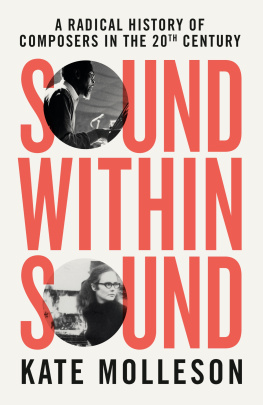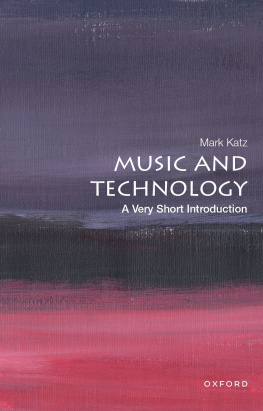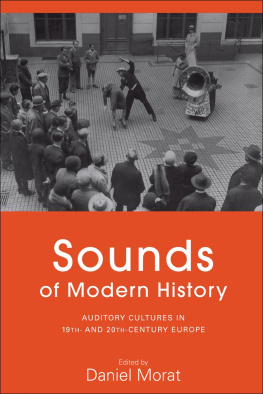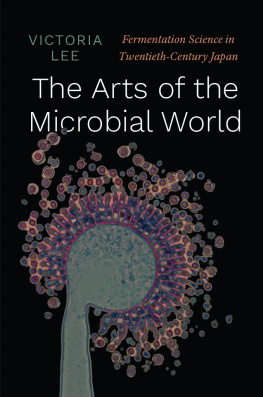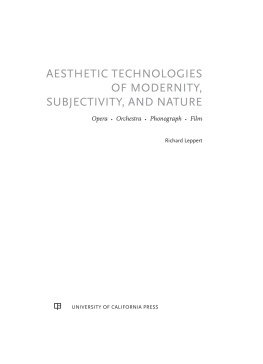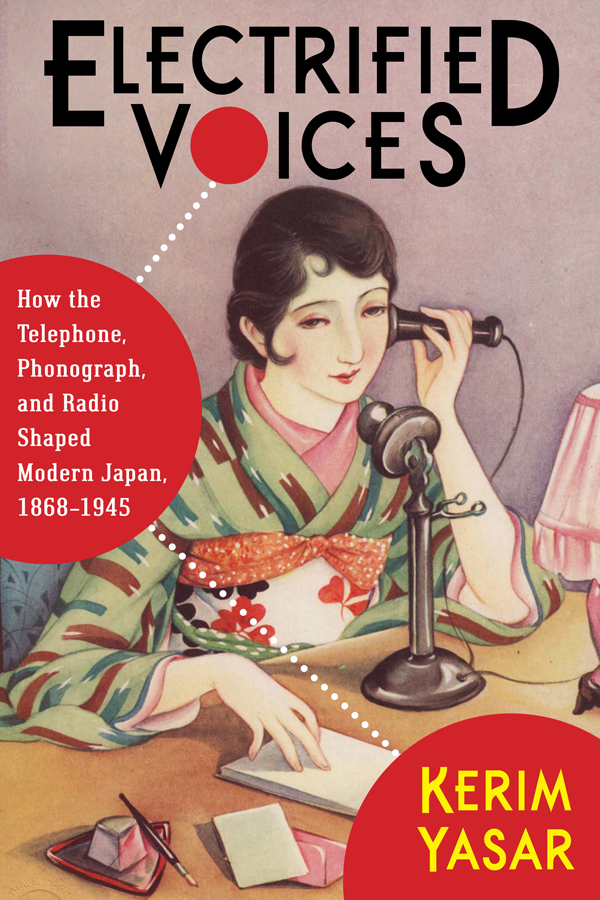Contents
Guide
Pagebreaks of the print version
ELECTRIFIED VOICES
STUDIES OF THE WEATHERHEAD EAST ASIAN INSTITUTE, COLUMBIA UNIVERSITY
STUDIES OF THE WEATHERHEAD EAST ASIAN INSTITUTE, COLUMBIA UNIVERSITY
The Studies of the Weatherhead East Asian Institute of Columbia University were inaugurated in 1962 to bring to a wider public the results of significant new research on modern and contemporary East Asia.
For a list of titles in this series, see
ELECTRIFIED VOICES
HOW THE TELEPHONE, PHONOGRAPH, and RADIO SHAPED MODERN JAPAN, 18681945
_________
KERIM YASAR
Columbia University Press
New York

Columbia University Press
Publishers Since 1893
New York Chichester, West Sussex
cup.columbia.edu
Copyright 2018 Columbia University Press
All rights reserved
E-ISBN 978-0-231-54702-4
Library of Congress Cataloging-in-Publication Data
Names: Yasar, Kerim, author.
Title: Electrified voices : how the telephone, phonograph, and radio shaped modern Japan, 18681945 / Kerim Yasar.
Description: New York : Columbia University Press, [2018] | Series: Studies of the Weatherhead East Asian Institute, Columbia University | Includes bibliographical references and index.
Identifiers: LCCN 2018012328 | ISBN 9780231187121 (cloth : alk. paper) | ISBN 9780231187138 (pbk. : alk. paper)
Subjects: LCSH: JapanCivilization18681945. | JapanHistory1868 | CommunicationSocial aspectsJapanHistory. | Sound recordingsSocial aspectsJapanHistory. | Mass media and cultureJapanHistory. | NationalismJapanHistory.
Classification: LCC DS822.25 .Y3784 2018 | DDC 952.03dc23
LC record available at https://lccn.loc.gov/2018012328
A Columbia University Press E-book.
CUP would be pleased to hear about your reading experience with this e-book at .
Cover design : Noah Arlow
Cover image : Takabatake Kashoe, Natsukashi no mikoe (Nostalgia of the real voice). Japan, 1920s. Courtesy of the Yayoi Museum
FOR MY MOTHER, AND FIRST AND BEST TEACHER, AZADE SEYHAN

CONTENTS
.
.
.
.
.
.
.
.
.
.
I led a peripatetic life during the writing of this book, living in many places and being affiliated with many institutions. The people named here all contributed something of value to the finished product, but its shortcomings are attributable to me alone.
Paul Anderer has been a generous and inspiring mentor, one who gives all of his students the freedom to pursue their intellectual passions while gently nudging them away from flying too close to the sun. We are as diverse a group as one could imagine coming from a single doctoral adviser, which speaks, I think, to his open-mindedness and genuine curiosity. Haruo Shirane gave me a rigorous grounding in the language and culture of premodern and early modern Japan, one that continues to inform the work that I do on later cultural production. Tomi Suzuki led me through some of the most difficult critical texts I have ever read in Japanese, a trial by fire that made everything that followed seem that much easier. James Schamus took time from his remarkably hyphenated career as producer-screenwriter-studio head-professor-scholarand now, directorto teach me much of what I know about film theory and to support my research and career in other ways. Many other current and former Columbia University faculty have given generously of their time and expertise, including Carol Gluck, David Lurie, Gregory Pflugfelder, Wei Shang, Lening Liu, and Henry D. Smith. Just as important as my teachers were my fellow graduate students, who were and are dear friends and are all now exemplary scholars and teachers: Michael Berry, Torquil Duthie, Michael Emmerich, Linda Rui Feng, Sun-Chul Kim, Christina Laffin, Tom Mullaney, Se-Mi Oh, Gian Piero Persiani, Tomoko Sakomura, Satoru Saito, Satoko Shimazaki, and Weijie Song.
Toeda Hirokazu has mentored a long line of U.S.-based doctoral students at Waseda University, and Im proud to boast that I was the first. He and Tanaka Hikari have been good friends and mentors over the years. Tsuge Genichi, professor emeritus at the Tokyo University of the Arts, gave me my first opportunity to study in Japan, and for that I will always be grateful.
I took a hiatus from my graduate studies to work at Vertical, Inc., in New York City, an experience that, though removed from the academy, taught me much of what I know about contemporary Japanese literature and the inner workings of the culture industry more generally. Ioannis Mentzas, Hiroki Sakai, and Anne Ishii (also a classmate at Columbia) made that possible and made it fun.
My first academic job, at Boston University, was a delight, thanks largely to my colleague J. Keith Vincent, who is a brilliant scholar, a gracious host, and a gentleman nonpareil. Im grateful to Sarah Frederick for hiring me to cover for her while she was away and to my other colleagues, Peter Joseph Schwartz, Sunil Sharma, William Waters, and Anna Zielinska-Elliott.
After that, I spent three idyllic years at Princeton Universitys Society of Fellows in the Liberal Arts. Mary Harper, the (now former) executive director of the society, was a peerless administrator and a fine scholar in her own right. Scott Burnham, the interim director during my first year, never failed to convey the joy of my first love (music) or to put a smile on my face. Susan Stewart, who served as director for the rest of my time there, is a poet and scholar with rare gifts who led the organization with aplomb. Thomas Hare in the Department of Comparative Literature was a consistently supportive mentor. David Bellos never missed an opportunity to support translators and translation. Im also grateful to my colleagues there in the field of East Asian studies: Steven Chung, Martin Collcutt, Benjamin Elman, Sheldon Garon, David Howell (now at Harvard), Martin Kern, Paize Keulemans, David Leheny, Federico Marcon, Jerome Silbergeld, and Atsuko Ueda. I would also take this opportunity to honor the estimable memory of Richard Hideki Okada, who passed away during my last year at Princeton. Other people I met at Princeton, most of whom have moved on elsewhere, also made my time there wonderful. They include On Barak, Yulia Frumer, Scott Gregory, Russ Leo, Noriko Manabe, Nikos Panou, and Patrick Schwemmer. Last but certainly not least, I am grateful to Simon Grote, whom I only met well into my lifes course, but who now feels like a lifelong friend.
During the summer of 2011, I was a visiting researcher at the Institute for Advanced Studies on Asia at Tokyo University. My thanks to Haneda Masashi, who was then director of the institute, for hosting me, as well as to Baba Norihisa for his help and friendship.
The year I spent at the University of Notre Dame was in many ways a transitional period, but it was a rich and productive time that I remember with great fondness. Lionel Jensen, my larger-than-life colleague, went out of his way to make me feel welcome from day one, while Julia Adeney Thomas and Michael Brownstein have continued to be supportive in ways that I hope to be able to repay one day. Thanks as well to East Asian studies librarian Hye-jin Juhn.
The Department of East Asian Languages and Literatures at Ohio State University was a singularly collegial and supportive professional home during the four years that I spent there. Ill always be grateful to my colleagues Mark Bender, Marjorie Chan, Kirk Denton, Naomi Fukumori, Meow-Hui Gou, Xiaobin Jian, Pil Ho Kim, Debbie Knicely, JJ Nakayama, Mari Noda, Danielle Pyun, Charlie Quinn, Shelley Quinn, Pat Sieber, Richard Torrance, Jim Unger, Galal Walker, Jianqi Wang, Zhiguo Xie, and Etsuyo Yuasa. Im also deeply indebted to the now-retired Japanese studies librarian, Maureen Donovan, for building a collection that has breadth, depth, and character, and for supporting the collection of historical recordings. My thanks as well to Tommy Davis, Dave Filipi, Namiko Kunimoto, and Paul Reitter for their support and friendship.


